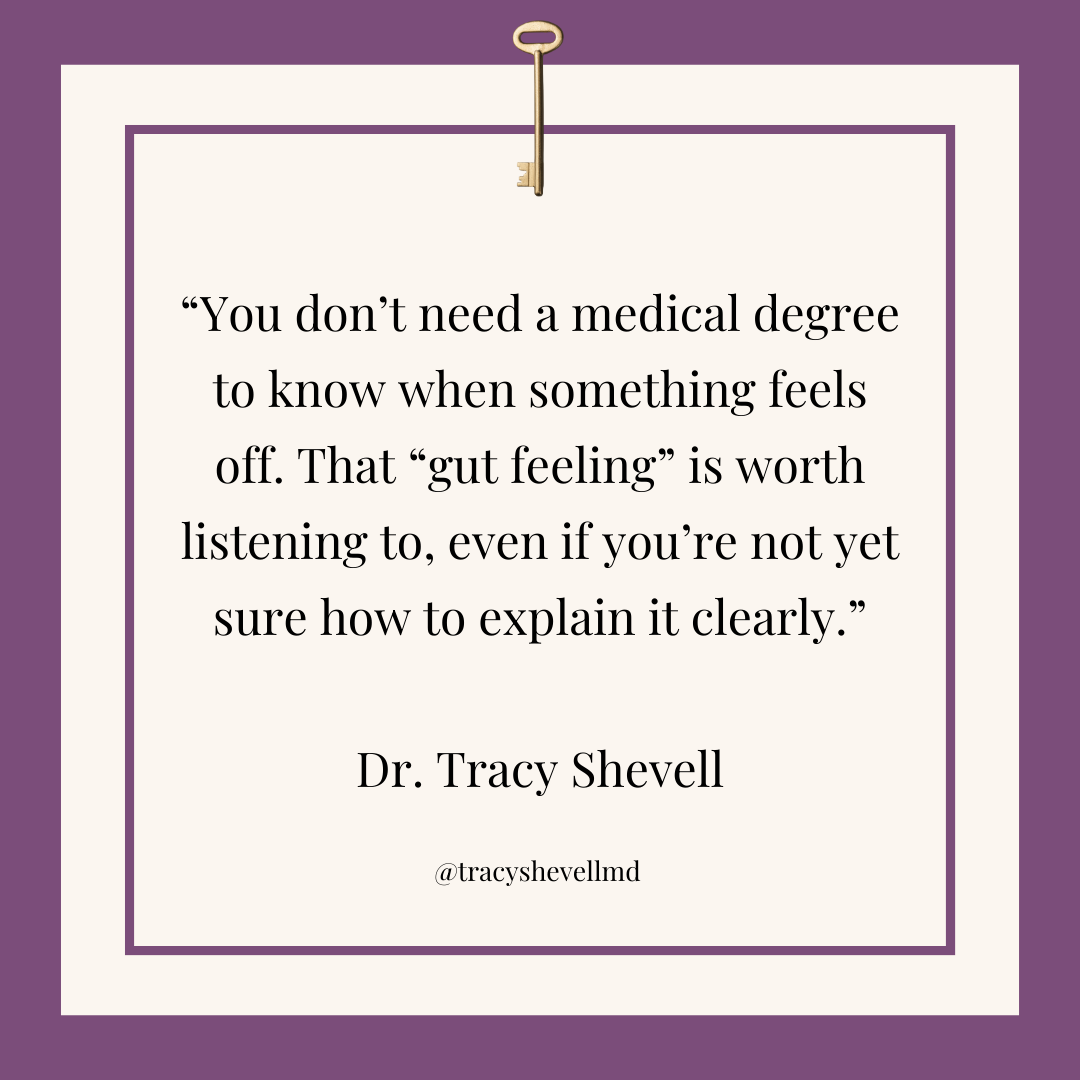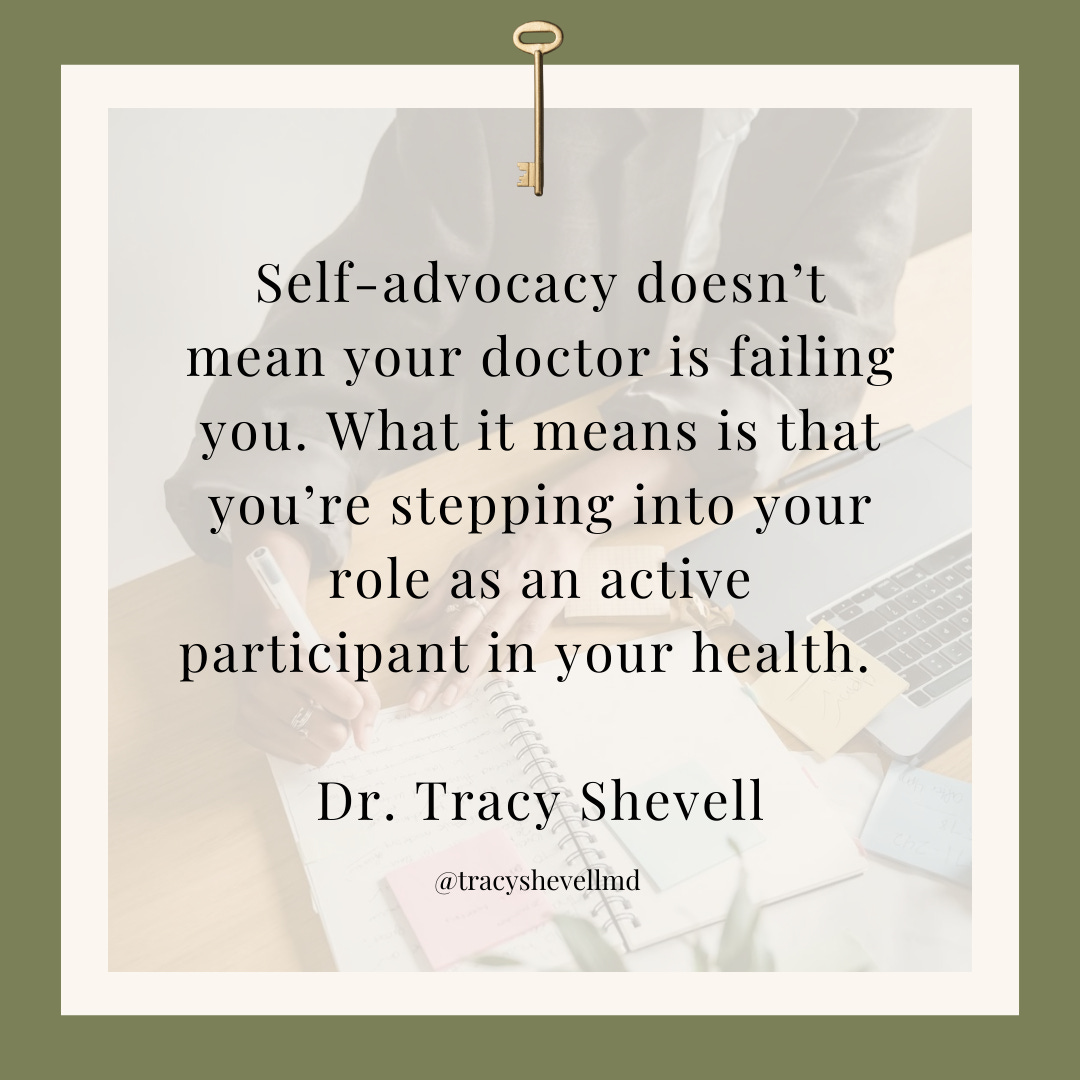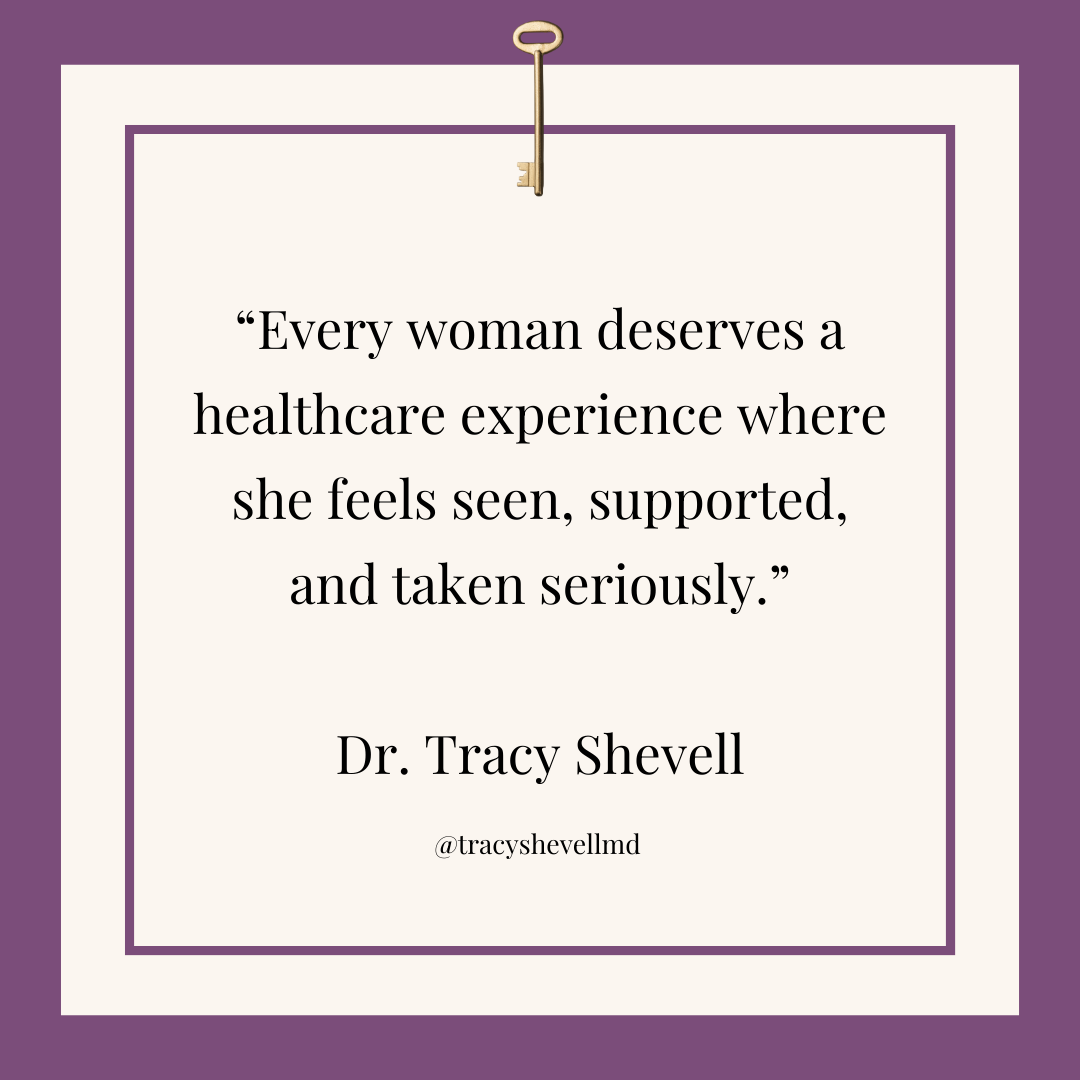From Dismissed to Diagnosed: How to Push for Answers When You Know Something’s Wrong
Advocate for yourself in the moments that matter most.
Advocating for Yourself in the Moments That Matter Most
There’s a moment many women know too well:
You feel something in your body that isn’t normal.
You bring it up at your appointment.
And you’re told—sometimes kindly, sometimes not—“It’s probably nothing.”
But what if it isn’t nothing?
As a high-risk OB/GYN, I’ve spent more than two decades walking women through complex, confusing, and often dismissed health issues. I’ve seen what happens when something “small” is overlooked. I’ve also seen the relief—and results—that come when women trust their instincts, speak up, and get the answers they need.
This is for the woman who knows something feels off… and doesn’t want to wait until it gets worse to be taken seriously.
Let’s talk about what you can do before that dismissal happens, or after it already has—and how to stay grounded and strong in the process.
You’re the Expert on Your Body—Even if You Don’t Have the Words Yet
You don’t need a medical degree to know when something feels off. That “gut feeling” is worth listening to, even if you’re not yet sure how to explain it clearly.
Write down the symptoms—even the subtle ones. Track when they happen, how long they last, and what you’ve tried. This is all valuable data, especially when appointments are short and time with your doctor is limited.
Prepare Practically—and Emotionally
You don’t have to go into your appointment unprepared. Bring a notebook or a support person. Write down your top three concerns ahead of time. Know what you hope to walk away with—whether that’s a referral, a diagnostic test, or a plan for a second opinion.
This kind of preparation not only makes the appointment more productive, but it also helps you stay focused if emotions run high.
A Script to Use When You’re Worried About Being Dismissed
If you feel like your concerns aren’t being taken seriously, try saying:
“I’ve been tracking this issue and it’s impacting my quality of life. I’m concerned, and I’d like us to explore it more fully. Can you walk me through how we can rule out anything more serious?”
Or:
“I understand that this may not seem alarming, but I’ve been living with it daily and would like to be proactive. What are our options for testing or referral?”
Small shifts in language can change the course of a visit—and remind your provider that you’re an engaged, informed partner in your own care.
When the Experts Miss It: Fran Drescher’s Story of Self-Advocacy
Fran Drescher, best known for her role in The Nanny, experienced a two-year journey to a correct diagnosis of uterine cancer. Despite presenting with symptoms like abnormal bleeding and pelvic pain, she was misdiagnosed by eight doctors, often attributed to perimenopause due to her age and body type. It wasn't until she insisted on further testing that a biopsy revealed stage I uterine cancer.
Drescher took control of her health narrative. She founded the Cancer Schmancer Movement, aiming to educate and empower individuals to prioritize early detection and prevention. The organization focuses on transforming patients into proactive medical consumers and has been instrumental in passing legislation like the Gynecologic Cancer Education and Awareness Act.
Drescher's story underscores the importance of self-advocacy and the necessity for patient-doctor collaboration. By trusting her instincts and persisting in seeking answers, she not only secured her health but also became a beacon for others facing similar challenges.
For more on Fran Drescher’s journey and the Cancer Schmancer Movement, visit cancerschmancer.org.
[ Insert quote: “I realized that I had to be my own advocate. I couldn’t just accept what was given to me; I had to ask questions and explore my options.” - Fran Drescher ]
Advocacy Isn’t a Critique—It’s a Collaboration
Self-advocacy doesn’t mean your doctor is failing you. It doesn’t mean the system is beyond repair. What it means is that you’re stepping into your role as an active participant in your health.
Even the most thoughtful, experienced providers are working with limited time and limited information. When you speak up—when you say something feels off, when you ask questions, when you express urgency—you’re helping your doctor do their job better.
This is not about blame. It’s about partnership. Your voice gives context. Your story fills in the gaps. And your urgency? That’s valid.
If you’re not okay waiting six months or following up in a year—say so. Your care should match the intensity and importance of your experience, even if it doesn’t seem urgent on paper.
This mission isn’t about tearing down doctors. It’s about waking up to the fact that you are your best advocate—and your health deserves to be prioritized.
You Deserve to Be Heard. You Don’t Have to Do It Alone.
If something feels off, don’t wait. Start tracking. Start asking. And if you need help preparing for a difficult appointment, that’s where I come in.
Every woman deserves a healthcare experience where she feels seen, supported, and taken seriously.
Follow for More
I would love to hear your thoughts on this topic! You can send me a message here or on Instagram @tracyshevellmd.
With love,
Dr. Tracy







